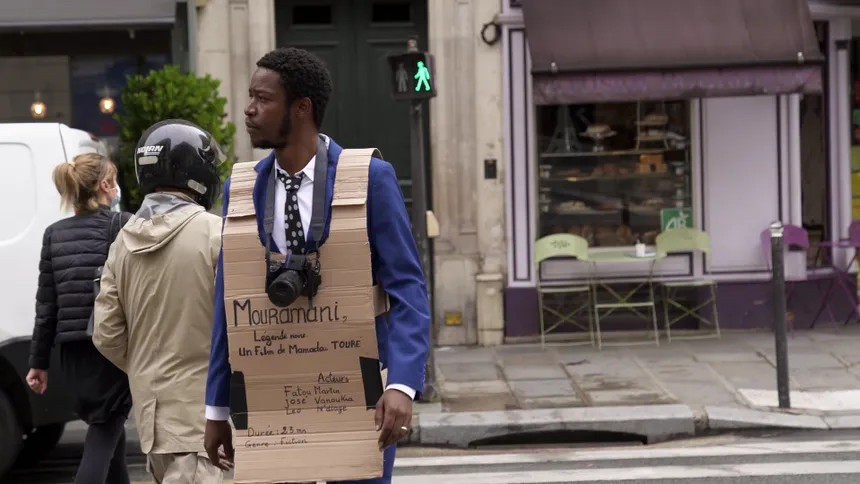International Documentary Festival Amsterdam: THE CEMETERY OF CINEMA Review
Thierno Souleymane Diallo's documentary shows his love for film through a quest for a lost classic.

Mouramani, a film by Mamadou Touré made in the mid fifties, was by all accounts the first African film shot in the French language. But nobody in Guinea seems to have seen it, as director Thierno Souleymane Diallo is finding out. So he sets out to find a potential remaining copy of Mouramani, which leads him to all sorts of unexpected places.
The gist of this documentary The Cemetery of Cinema is that Diallo is mainly using Mouramani as a setting of point to explore film culture in Guinea. He visits an abandoned cinema, an demolished archive, a retired censor, an elderly director. They all seem to say the same thing: Mouramani does not exist anymore, and this is a fool's errand. As one person states: Guinea is not a country of archives. What it is, according to The Cemetery of Cinema, is a country that through stops and starts, strife and conflict, never really had a chance to develop something of a national cinema, or a history of one.
But if the title, and the sometimes disheartening search, seem to suggest the death of cinema, a national cinema in despair, the ultimate tone of The Cemetery of Cinema is much more hopeful. Two of the most striking sequences are in one way about political turmoil and lack of funding. But they touch on a thing that is larger than something physical: the human imagination.
The Cemetery of Cinema tells the story of a few filmmakers who got imprisoned, and started to make their own film in confinement. Without cameras, but collaborating and jotting their screenplay down on pieces of paper made from leftover scraps of carton. Thierno Souleymane Diallo films this story through the use of figures made of iron wire. It's a beautifully bare-bones approach, where the play of light is enough to vividly call to mind the circumstances of this imprisonment and the glory of the film that was never made.
Even more compelling is a scene in a school class, in which the future filmmakers of Guinea are taught, without any sufficient funding. Diallo uses a technique inspired by the documentarist Joris Ivens, and gives the students cardboard "cameras". Instead of really filming, they have to imagine their framing and blocking in their mind's eye. Instead of editing, they need to orally convey what they have shot. It speaks to the power of cinema and imagination that these students come back with a giddy demeanor, having truly made some powerful shots in their mind's eye. It is enough to be convinced of the power of cinema, even when there is no camera or footage in sight.
This hopefulness gets sidetracked once Diallo gets closer to his goal, and visits France to see if he can find a copy of Mouramani. Instead he finds a scholar who is very dismissive of the film, calling it an effort that by all accounts was poor, so it shouldn't count as the true first African-French film, leaving that glory to another film that he deems to deserve that classic status. It is a show of snobbery and classicism about film that is in stark relief to the enormous joy the students showed in the film just earlier. Yes, Diallo seems to say: France is a country with an archive, unlike Guinea. A country with a cinematic history, and an actual national cinema. But, what use is it, when this canon is used to dismiss those filmmakers deemed lesser than?
Eventually the search leads to an inevitable conclusion, with an ending so properly fitting, that it touches on the poetic. Without giving the full game away, Diallo ties all the subtext and themes neatly together, and finds a great final shot. The Cemetery of Cinema sticks the landing. Unlike the title, which seems to suggest cinema is dead, the only proper conclusion you can have after that brilliant last image is that cinema is truly alive.
The Cemetery of Cinema
Director(s)
- Thierno Souleymane Diallo
Cast
- Thierno Souleymane Diallo
- Penda Lam
- Aboubacar Condé







